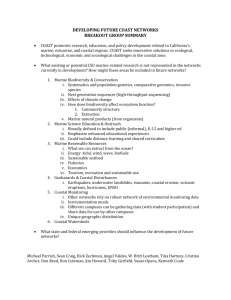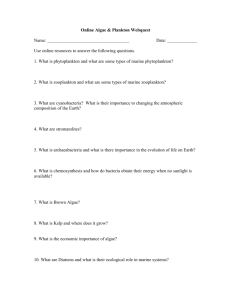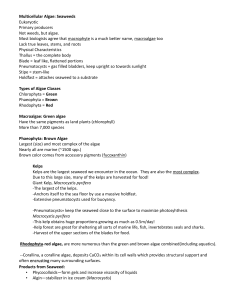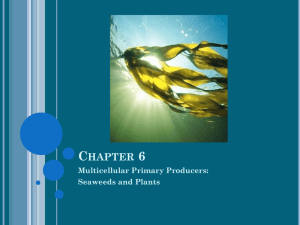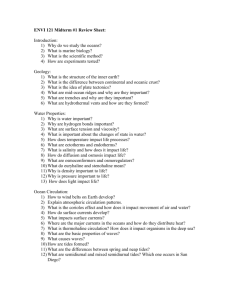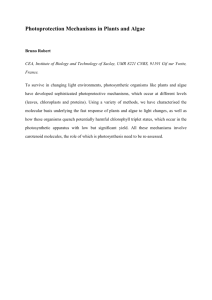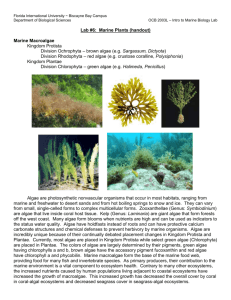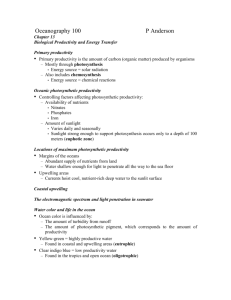10361_Krupnova-ed - PICES - North Pacific Marine Science
advertisement
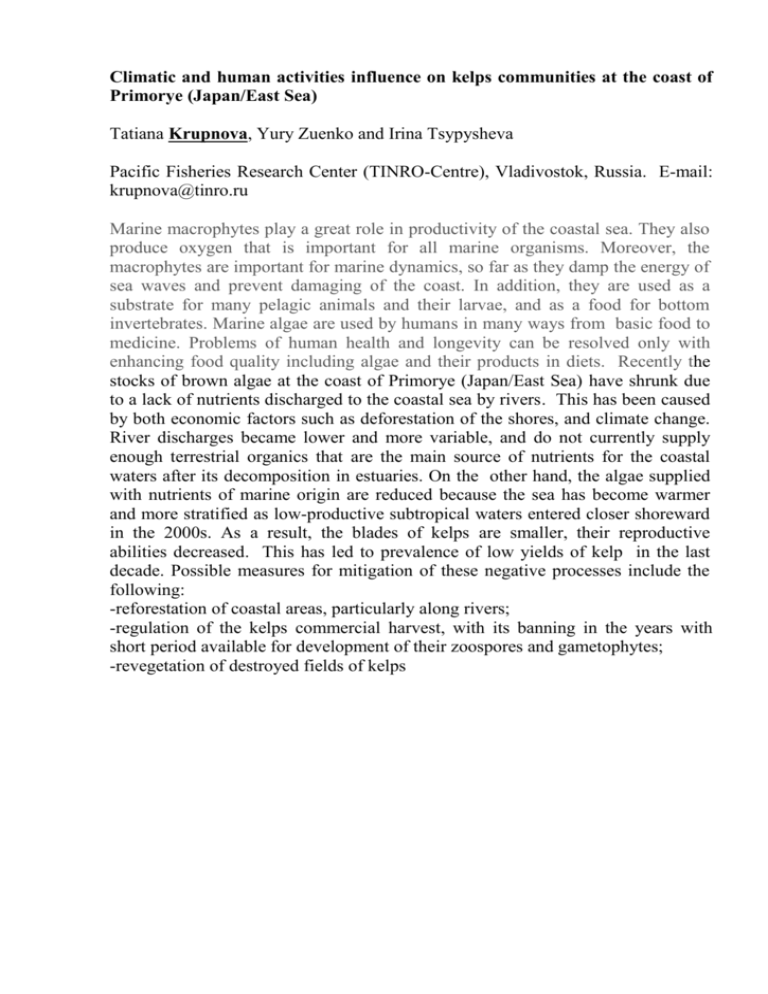
Climatic and human activities influence on kelps communities at the coast of Primorye (Japan/East Sea) Tatiana Krupnova, Yury Zuenko and Irina Tsypysheva Pacific Fisheries Research Center (TINRO-Centre), Vladivostok, Russia. E-mail: krupnova@tinro.ru Marine macrophytes play a great role in productivity of the coastal sea. They also produce oxygen that is important for all marine organisms. Moreover, the macrophytes are important for marine dynamics, so far as they damp the energy of sea waves and prevent damaging of the coast. In addition, they are used as a substrate for many pelagic animals and their larvae, and as a food for bottom invertebrates. Marine algae are used by humans in many ways from basic food to medicine. Problems of human health and longevity can be resolved only with enhancing food quality including algae and their products in diets. Recently the stocks of brown algae at the coast of Primorye (Japan/East Sea) have shrunk due to a lack of nutrients discharged to the coastal sea by rivers. This has been caused by both economic factors such as deforestation of the shores, and climate change. River discharges became lower and more variable, and do not currently supply enough terrestrial organics that are the main source of nutrients for the coastal waters after its decomposition in estuaries. On the other hand, the algae supplied with nutrients of marine origin are reduced because the sea has become warmer and more stratified as low-productive subtropical waters entered closer shoreward in the 2000s. As a result, the blades of kelps are smaller, their reproductive abilities decreased. This has led to prevalence of low yields of kelp in the last decade. Possible measures for mitigation of these negative processes include the following: -reforestation of coastal areas, particularly along rivers; -regulation of the kelps commercial harvest, with its banning in the years with short period available for development of their zoospores and gametophytes; -revegetation of destroyed fields of kelps
